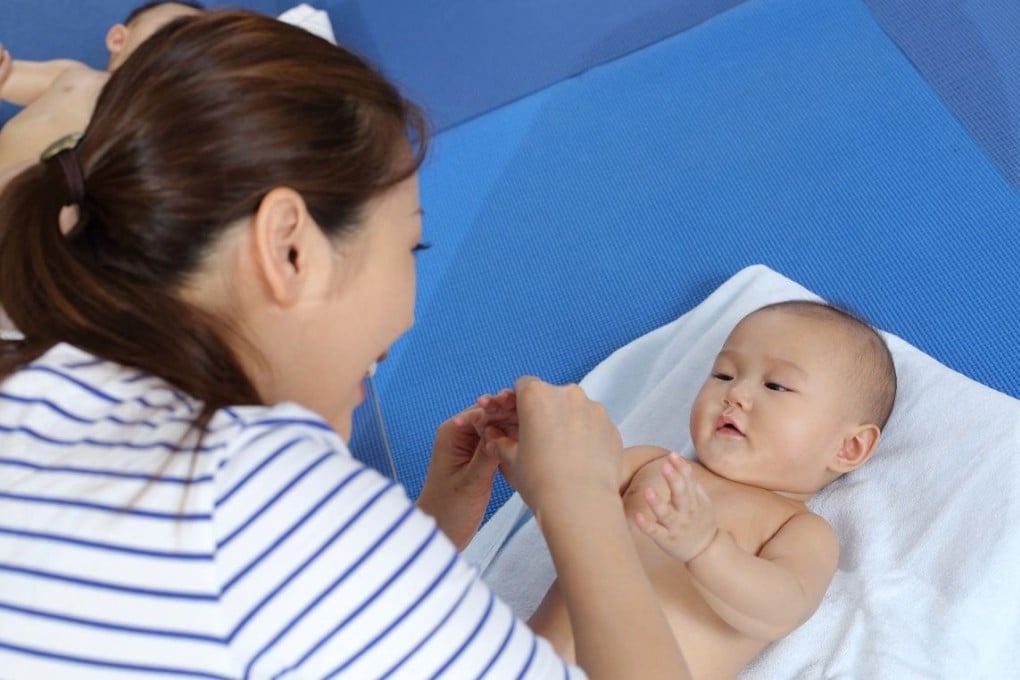The Power of Touch
[Sponsored Article] The past 20 years have seen increasing scientific research into the benefits of touch in infancy. Frederick Leboyer, a French obstetrician, wrote in 1985 of his observation that “Being massaged is food for the infant. Food as necessary as minerals, vitamins and protein.” Dr Tiffany Field and her colleagues at the Touch Research Institute in Miami, Florida have also established as early as 1966 that massage will facilitate growth in pre-term infants.

[Sponsored Article]
The past 20 years have seen increasing scientific research into the benefits of touch in infancy. Frederick Leboyer, a French obstetrician, wrote in 1985 of his observation that “Being massaged is food for the infant. Food as necessary as minerals, vitamins and protein.” Dr Tiffany Field and her colleagues at the Touch Research Institute in Miami, Florida have also established as early as 1966 that massage will facilitate growth in pre-term infants. Matilda International Hospital (MIH) is the training centre for the Sweden-based International Association of Infant Massage (IAIM), and Debbie Tong, Senior Manager for Health Education and also a qualified IAIM instructor, shares insight on how both the mother and the father can enhance bonding with the infant and general well-being through gentle touch.
Never too young for a massage
Giving a massage to one’s child is a calming and loving way to connect. The act will enable the parent to gain confidence in holding and handling the baby, as well as learning to watch and interpret the baby’s cues and observing how the baby reacts to touch. This in turn will help the parent identify the baby’s likes and dislikes as well as gaining a deeper understanding of the baby’s natural cycle and rhythm. According to Ms Tong, IAIM has a mission to spread the knowledge of infant massage, and parents can learn the theory and practice of infant massage.
In the IAIM literature, the benefits of baby massage are numerous and varied but can be divided into four main categories, namely, interaction, stimulation, relief and relaxation.
Interaction: The interactive benefits include fostering, developing and promoting a deep bond with the baby which in turn can help enhance a secure attachment. Massage is a wonderful tool to use in the pre-language time to demonstrate love, respect, touch, tolerance and empathy. Furthermore, giving the baby an undivided attention allows the parent time to focus on him or her and vice versa. In the early weeks and months this one on one attention helps the baby to learn about imitation, mirroring and mimicking facial expressions and vocalisations.

Stimulation: The stimulatory benefits may include enhanced mind/body awareness. Depending on the types of strokes used as well as the direction, depth and pressure, there can be a stimulatory effect on many other body systems, namely, circulatory, digestive, hormonal, immune, lymphatic, respiratory and vestibular. Also, whilst massaging the baby, the parent will likely be talking with, singing to and cooing with the baby which is a recognised way of stimulating language development.
Relief: Some babies take longer than others to adjust to ex utero life. Whist this adjustment is taking place, baby massage may help relieve some of the discomforts they may be experiencing such as gas or colic, constipation, excessive mucus, teething discomfort, muscle tightness as well as physical or psychological tensions.
Relaxation: Baby massage is also a way of showing and mirroring to the baby and is also a way to relax and to enjoy a shared experience. Relaxation benefits that have been reported by parents include improved sleep patterns, better regulation of behavioral states, increased periods of calmness and thus longer periods of alertness and interaction. The relaxation response acquired early in life can become part of the growing child’s response to the world around them.
As well as benefiting the baby there are numerous benefits for parents who give the massage. Being better able to interpret and respond to the baby’s cues gives the parent a sense of self-empowerment and confidence in one’s parenting skills that can be a huge benefit in the early weeks and months as new moms and dads transition through parenthood. “Fathers who massaged their one-month old babies for eight weeks also tend to show greater involvement with their infants than fathers who did not massage their babies. These were findings from one minute observations mentioned in IAIM literature,” said Ms Tong.
The bond fostered during the daily ritual of baby massage that demonstrates love, compassion, warmth, openness and respect, all are key skills for the child to use later in life as the child embarks on connecting with others.
